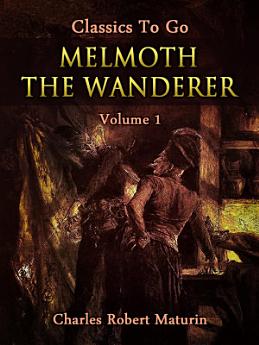Melmoth the Wanderer Vol. 1 (of 4)
Oct 2017 · Otbebookpublishing
Ebook
659
Pages
family_home
Eligible
info
reportRatings and reviews aren’t verified Learn More
About this ebook
"Melmoth the Wanderer" is an 1820 Gothic novel by Irish playwright, novelist and clergyman Charles Maturin. The novel's title character is a scholar who sold his soul to the devil in exchange for 150 extra years of life, and searches the world for someone who will take over the pact for him, in a manner reminiscent of the Wandering Jew. The novel is composed of a series of nested stories-within-stories, gradually revealing the story of Melmoth's life. The novel offers social commentary on early-19th-century England, and denounces Roman Catholicism in favour of the virtues of Protestantism. (Excerpt from Wikipedia)
About the author
Charles Robert Maturin (1780-1824) was an Irish clergyman and novelist whose life and work encapsulate the tumultuous spirit of the early 19th century. Born in Dublin, Maturin's literary career was marked by a gothic imagination and a flair for the dramatic, which earned him both acclaim and controversy. His works often delve into themes of existential dread, the supernatural, and the human psyche, reflecting the anxieties of a society on the brink of modernity.Maturin's influence extended far beyond his own time, impacting writers like Edgar Allan Poe and Charles Baudelaire, who admired his ability to blend horror with profound philosophical questions. Despite his clerical duties, Maturin's writings frequently challenged religious orthodoxy and societal norms, making him a somewhat paradoxical figure—a man of the cloth who dared to explore the darker corners of the human soul.His personal life was as complex as his fiction. Maturin struggled with financial instability and professional setbacks, including a controversial dismissal from his clerical post due to his literary pursuits. Yet, his resilience and dedication to his craft never wavered. He was a member of the Anglo-Irish Protestant Ascendancy, which added layers of social and political tension to his work, reflecting the fractured identity of Ireland during his lifetime.Maturin's legacy lies in his ability to capture the zeitgeist of his era while pushing the boundaries of gothic literature. His daring exploration of taboo subjects and his intricate narrative style continue to resonate with modern readers, cementing his place as a pivotal figure in the evolution of gothic fiction.
Rate this ebook
Tell us what you think.
Reading information
Smartphones and tablets
Install the Google Play Books app for Android and iPad/iPhone. It syncs automatically with your account and allows you to read online or offline wherever you are.
Laptops and computers
You can listen to audiobooks purchased on Google Play using your computer's web browser.
eReaders and other devices
To read on e-ink devices like Kobo eReaders, you'll need to download a file and transfer it to your device. Follow the detailed Help Center instructions to transfer the files to supported eReaders.







